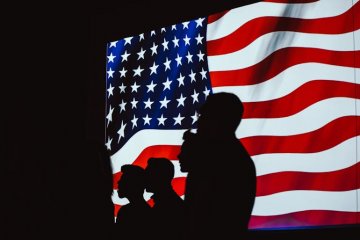Editor’s Choice
Dr Vassilia Orfanou, PhD, Post Doc
Headline Diplomat eMagazine
Introduction
In a world fraught with conflict and instability, the media often finds itself at the forefront of shaping public perception and influencing global responses to crises. Through a series of case studies spanning different regions and historical contexts that may be purchased here, we have explored the profound impact of media on conflict dynamics, from serving as an early warning catalyst to advocating for peace and reconciliation.
South Sudan, Sierra Leone, and the Russo-Ukraine Crisis: In South Sudan, Sierra Leone, and the Russo-Ukraine crisis, the media played a dual role, both as a catalyst for international awareness and pressure and as a potential contributor to exacerbating tensions through biased reporting and propaganda. Moving forward, there is a pressing need for comprehensive media reform initiatives to foster impartiality, ethical journalism, and media independence.
Liberia, East Timor, and Darfur: In Liberia, East Timor, and Darfur, the media emerged as a powerful force for advocating human rights, exposing atrocities, and fostering reconciliation in post-conflict societies. However, challenges such as media manipulation and censorship underscore the importance of supporting independent journalism and promoting ethical reporting practices.
Bosnia, Northern Republic of Macedonia, and Somalia: In Bosnia, the Northern Republic of Macedonia, and Somalia, the media played a critical role in shaping public perception and influencing international responses to conflict. Recommendations include investing in early warning mechanisms, supporting media diversity, and fostering collaboration between media organizations, governments, and civil society.
Rwanda: In Rwanda, the media’s portrayal played a pivotal role in shaping global understanding of the 1994 genocide. Responsible media practices, including accurate reporting and countering hate speech, are essential for preventing the escalation of conflicts and mitigating violence.
Conclusion
As we reflect on the lessons learned from these case studies, it becomes evident that the media’s role in conflict prevention, early warning and resolution is multifaceted and complex. While the media has the potential to serve as a force for peace, early warning, and reconciliation, it also faces challenges such as bias, manipulation, and censorship.
Call to action
The only way forward is to collectively commit to the following actions:
Invest in Media Reform: Governments, international stakeholders, and media organizations must prioritize initiatives that foster media independence, impartiality, and ethical journalism. Diplomatic efforts should underscore the significance of unbiased media coverage, and sustained pressure on governments is essential to guarantee freedom of the press.
Support Independent Journalism: Supporting local journalism and empowering journalists to navigate challenges in conflict reporting are essential for fostering a more informed, compassionate, and proactive global community.
Promote Ethical Reporting: Media organizations must prioritize accurate reporting, ethical journalism practices, and resilience against external pressures. Collaborative efforts between governments, international bodies, and media outlets are needed to ensure the free flow of information and protect the integrity of media as a tool for peace.
Strengthen International Mechanisms: The global community should strengthen international mechanisms to counter disinformation and propaganda, especially in the context of state-controlled media. By engaging with affected communities, allocating resources, and promoting responsible reporting, we can transform media into a potent force for understanding, justice, and reconciliation in the aftermath of conflict.
Empower Media as a Force for Peace: Collaborative efforts, continuous support, and focused action are essential in paving the way for a better future. The international community must stand united against any attempts to suppress media coverage and actively support independent journalism. By investing in media reform, supporting independent journalism, and promoting ethical reporting practices, we can harness the power of media as a force for peace, unity, and informed global citizenship.
In an interconnected world where media information shapes public perceptions and policies, the commitment to ethical journalism becomes a moral imperative for the betterment of global society. Let us heed the lessons learned from these case studies and work together to empower media as a force for peace, understanding, and reconciliation in conflict-affected regions worldwide.
Featured photo: Kenneth Surillo: https://www.pexels.com/el-gr/photo/5727614/




